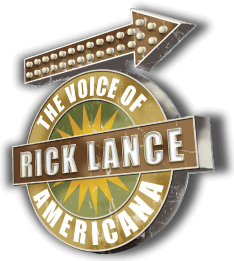Being a voice actor in the world of documentaries is about much more than just reading a script. It’s a delicate balance of staying neutral while connecting emotionally with the audience. Every project I take on in my studio, Rick Lance Studio, requires me to adapt my delivery to fit the story while maintaining an unbiased tone. Let me share how documentary voice actors like myself master this skill.
Balancing Neutrality with Connection
Documentary narration isn’t about personality or flair; it’s about creating trust with the listener. As a voice actor for documentaries, my role is to let the story speak, without letting my emotions overshadow it. This impartiality is key, but so is ensuring the audience feels something. Whether it’s the gravity of a historical event or the urgency of a social issue, my voice must reflect the emotional pulse of the material—without veering into sentimentality. It’s about finding the right moments to pull the audience in, while staying anchored in the facts.
Understanding the Story Inside and Out
The first step in creating an effective documentary voiceover is understanding the content deeply. A documentary voice actor must immerse themselves in the subject matter. Whether it’s science, history, or social issues, my goal is to narrate with authenticity. I spend time researching, reading, and preparing so that when I step into the studio, I can deliver each line with both knowledge and emotion. This level of preparation is crucial to ensuring the voiceover feels real and connected to the narrative.
Clarity is Crucial
In documentaries, especially those with dense topics, clarity is everything. Viewers need to absorb facts, names, and dates, and it’s my job to ensure each piece of information lands. Precision in enunciation is essential, as is pacing. I work with scripts to ensure the narrative flows naturally, and I make sure the technical aspects of my delivery—tone, pitch, and rhythm—don’t disrupt the clarity. When a commercial voice over hire is involved in a documentary project, this clarity is even more critical, especially when conveying complicated material.
Emotion Through Subtlety
It’s easy to assume that documentary narration requires a neutral, flat delivery, but that’s a misconception. A skilled voice actor knows how to add emotion through subtlety. It’s not about yelling or overdramatizing; it’s about allowing the material to breathe. The weight of a sentence might come from a slow delivery or a slight change in pitch. These small shifts bring out the emotional depth of the subject without straying from the objective tone.
Adaptability for Different Styles
No two documentaries are the same. One project might require a more reflective tone, while another might need an authoritative, assertive voice. The ability to shift between styles while maintaining impartiality and emotional resonance is what sets a professional documentary voice actor apart. Whether I’m narrating a film on nature, politics, or culture, I always adapt my delivery to match the story, ensuring the voice never competes with the message.
At Rick Lance Studio, we understand that documentary voiceovers are about more than just sounding good—they’re about telling a story in a way that resonates with truth and emotion.
Get in touch with us:
Email: rick@ricklancestudio.com
Phone: 615 302-2812 (Studio)
Phone: 615 390-4109 (Mobile)
https://www.facebook.com/profile.php?id=1452311452
https://www.instagram.com/rick_lance_studio/
https://www.linkedin.com/in/ricklancestudiovoiceover
https://soundcloud.com/ricklancestudio
https://www.youtube.com/@VoiceofAmericana/videos
https://www.pinterest.com/ricklancestudio_/

